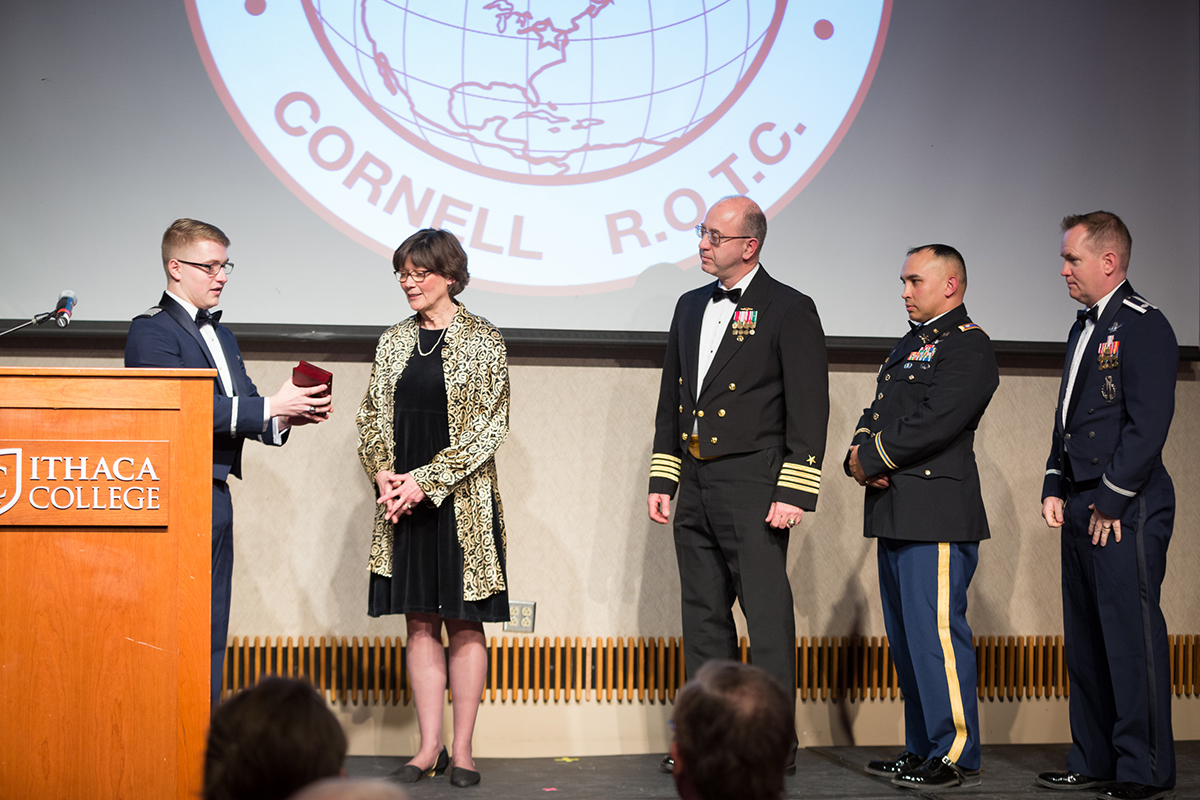Tri-Service Military Ball celebrates Cornell ROTC
By Ismael Oumzil

Students and alumni of Cornell’s Army, Navy and Air Force Reserve Officers' Training Corps (ROTC) program and their guests gathered for the annual Tri-Service ROTC Brigade Military Ball at Ithaca College Feb. 19. In addition to Ithaca College, students from Binghamton University, Elmira College and SUNY Cortland train at Cornell.
After prayers and words to honor prisoners of war and fallen service men and women, keynote speaker Judith Appleton, vice provost and the Alfred H. Caspary Professor of Immunology in the Baker Institute for Animal Health, described the history of the ROTC program at Cornell.
“Cornell as the land-grant university of New York has provided instruction of military tactics since its opening,” Appleton said.
She noted Cornell’s first president, Andrew Dickson White, was “an enthusiastic proponent of military training for those in college” who made it a requirement for all male students to undergo military training. White also believed the “uniforms would break down barriers of social and economic class and further the university’s egalitarian ideals,” she said.
Appleton said Cornell’s contribution to the American forces during World War I was “more than West Point and Annapolis combined” in the number of commissioned officers. Among those Cornell-trained commissioned officers were the three “first American women to attain military rank and also earn the Croix de Guerre for their service.” Appleton also noted that Cornell educated many soldiers and sailors during World War II.
Cornell is “the only Ivy League University to host Army, Navy, Marine Corps and Air Force ROTC programs,” Appleton said, citing Cornell’s support of military education and recognition of those who served in numerous campus war memorials.
The evening’s proceedings were finished by reflections of Cornell ROTC by retired Maj. Gen. Michael Hall ‘68, who discussed how ROTC experiences forever affect how you deal with difference and adversity. As examples, he told of dealing with strong opposition to the Vietnam War from his peers while he was a leader in the ROTC program as well as resolving tension with Saudi generals who practiced a much different culture than he was used to.
In closing remarks, Air Force Cadet Scott Seidenberger ’16, an ILR School student, discussed how his time with ROTC at Cornell has prepared him for the path ahead.
Ismael Oumzil '17 is a writer intern for the Cornell Chronicle.
Media Contact
Get Cornell news delivered right to your inbox.
Subscribe